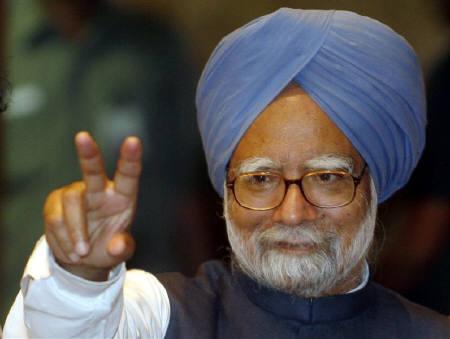New Delhi, April 6 (IANS) Corruption is a threat to the democratic fabric of the country and frustrates efforts to bring equity, President Pranab Mukherjee said Saturday, ans while referring to the Delhi gang-rape, called for resetting “our moral compass”.
Delivering the 14th D.P. Kohli Memorial Lecture organised here by the Central Bureau of Investigation (CBI), Mukherjee said: “Our delivery systems need mending and only good governance can provide an answer to the problem.”
“If what is meant for the poor does not reach them in the proportion it is meant to, then corruption and inefficiency are its two main causes,” he said.
“Corruption is a threat to the democratic fabric. It frustrates efforts to bring equity,” the president said in his lecture on “Good governance: Empowering Institutions, Society and Public”.
The lecture was organised in memory of Kohli who served as the probe agency’s director from 1963-68 and coincided with the CBI entering its golden jubilee year.
The president said the country was at a crossroads, and could not lose the momentum of change.
He said the basic principles of good governance had already been incorporated into the constitution by the nation’s founding fathers.
“Good governance means existence of elaborate architecture that has the good of the people as the only focus,” the president said.
“Lack of good governance has been identified as the root cause of many of the serious deficiencies in society. It robs the citizenry of their security, and their social and economic rights,” he said.
“At the root of poor governance is our lethargy for change, whether it is in the implementation of schemes or adherence to values,” he said.
Referring to gang-rape of a young woman in the capital and her subsequent death in December last year, he said the nation was grievously hurt.
He said the young woman was symbol of an aspiring nation. “As I had said earlier, I repeat and I do believe that it is time to reset our moral compass,” he said.
The president said law enforcement agencies should speed up the process of investigating allegations and the prosecution should also be speedy so that guilty were punished without delay.
“This would enhance the deterrent value of punishment. It would improve responsiveness, one of the most important features of good governance,” he said.
The president said that though India had made development strides, it ranked lower than major developed economies in key governance indicators such as voice and accountability, political stability and absence of violence, government effectiveness, regulatory quality, rule of law and control of corruption.
“There is still immense scope to better our participatory decision making structure, improve the application of rule of law, enhance transparency, increase accountability, promote greater equity and inclusiveness and improve consensus based approach,” he said, noting that poverty still hovered around 30 percent.
The president said affordable healthcare should be the priority, as many people were forced into poverty by the high cost of medicines and medical services.
“It is gratifying to note that building on the success of the National Rural Health Mission, a new National Health Mission combining the rural mission and a new urban mission is being envisaged with a budget outlay of over Rs. 21,000 crore in 2013-14,” he said.
The president noted how there was emphasis now on empowerment with entitlement, and cited rights-based legislations, including the right to education and the right to information enacted by the United Progressive Alliance (UPA) government as examples.
He said the direct benefit scheme would help bring greater transparency.
Complimenting the CBI on its work, he said it was the “most sought after agency for investigation” by every section of society.
He also released the golden jubilee logo of the CBI and the gave President’s Police Medal for Distinguished Service to six CBI officers.
Bharat Bhushan Sharma, a constable posted in Jammu and Kashmir, was given the D.P. Kohli Best Detective Constable Award.
CBI Director Ranjit Sinha said the golden jubilee was also an occasion for introspection and the people expected the agency to act with greater effectiveness and speed.
The opinions, beliefs and viewpoints expressed by authors, news service providers on this page do not necessarily reflect the opinions, beliefs and viewpoints of Hill Post. Any views or opinions are not intended to malign any religion, ethnic group, club, organization, company, or individual.
Hill Post makes no representations as to the accuracy or completeness of any information on this site page.



